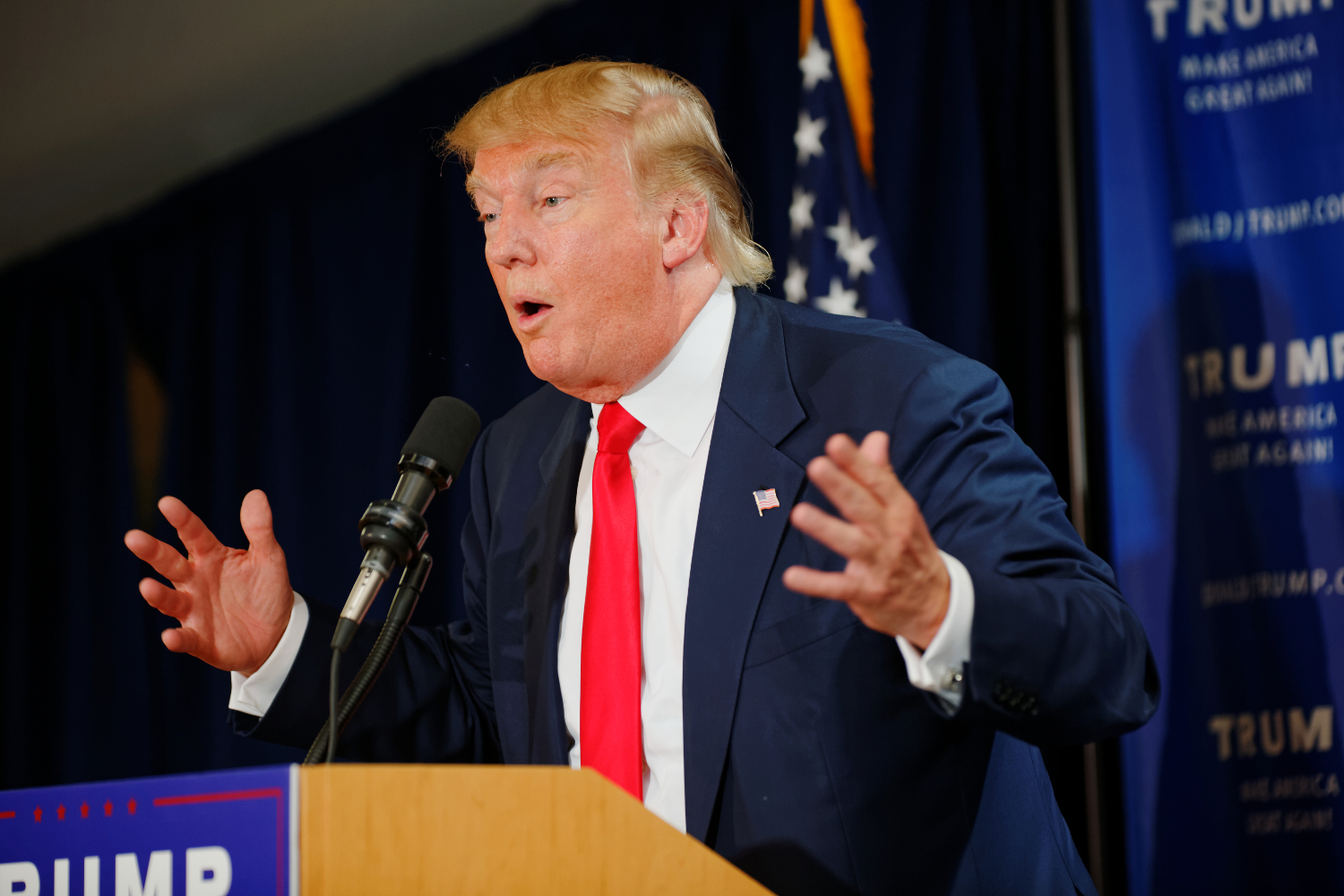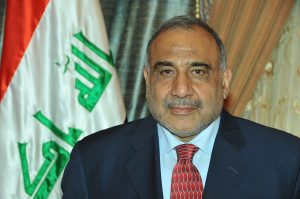by Phyllis Bennis
For a foreign policy speech that was supposed to make Republican candidate Donald Trump look presidential, it took an awful lot of digging through a basketful of bumper-sticker slogans to get to a substantive point. And when you did find it, it wasn’t very pretty.
It’s a narrow world, Trumpville. The sole reference to an actual course of action—you know, what foreign policy is supposed to be made of—was in Trump’s commitment to “strengthening and promoting Western civilization” as opposed to “trying to spread ‘universal values’ that not everyone shares.” In Trumpville, that means everyone shares the commitment to keeping America First, to treating allies as international ATMs, to walking away from negotiations (over what, we don’t know) if the US doesn’t get everything it wants, to protecting only “the Christians” (with no recognition that the vast majority of Islamic State (ISIS or IS) victims are Muslim), to ending immigration as we know it because it is “allowing in extremists.”
Much has been said by now about Trump’s clear lack of knowledge—not to speak of experience—in foreign affairs, diplomacy, or even military matters. He shows no evidence of familiarity with the geography, politics, economies, or peoples of the rest of the world. We don’t know whether his simplistic “America First,” is actually supposed to remind us of the right-wing movement of the same name that wanted to placate Hitler and Nazi expansionism. But his version of American exceptionalism does shape the one dangerous aspect of foreign policy he has actually articulated: the anti-immigrant policies that lie at the intersection of racism, xenophobia, and Islamophobia. His only specific plan is to change the immigration rules—because in Trumpville, Mexicans are all rapists, asylum seekers are all extremists, Muslims are all terrorists. All must be kept out.
Trump’s America First approach does reflect a preference for some level of isolationism. He distanced himself from other candidates, saying that “war and aggression will not be my first instinct.” It remains uncertain whether his main target was Ted Cruz and his nuclear threat to “carpet bomb” IS in the Middle East to see if “the sand glows,” or Hillary Clinton’s embrace of escalating wars in Libya, Syria, and beyond. Maybe he meant both of them.
Trump on Diplomacy
Trump did include a foreign policy 101 soundbite on his teleprompter, “You cannot have a foreign policy without diplomacy.” But he provided no indication that he understands diplomacy or has any idea how it works. Similarly, he checked off a reference to the need for “caution and restraint,” with zero evidence that his history of reckless self-indulgence would somehow be kept in check in the White House.
Trump didn’t tell us anything about what he thinks are the global problems facing the United States. Global warming? Massive poverty? Escalating wars, water shortages, food insecurity, loss of indigenous communities? No idea. But Trump did provide his own version of the main problems with Obama’s foreign policy that he called “a complete disaster”—the military is over-extended, allies are not paying their fair share of military actions, friends can’t depend on the US, enemies humiliate us and aren’t afraid, and there’s no clarity of foreign policy goals.
On IS, Trump did acknowledge that US actions in Iraq, Libya, and Syria helped unleash the terrorist organization, but he had no evident strategy for responding. In the past Trump had called for denying IS access to oil, but this speech made clear that he had no idea what he was talking about. He claimed that “now ISIS is making millions and millions of dollars a week selling Libyan oil.” Maybe his foreign policy advisers forgot to tell him that IS oil comes from Iraq and Syria or that the coastal territory IS holds in Libya has no oil? But at least he was consistent in his “Western civilization” emphasis, Trump was concerned only that the US “has done nothing to help the Christians,” ignoring the reality that the vast majority of IS victims as well as the victims of the war in Syria are Muslim.
Earlier in his campaign, Trump said that the US should be neutral between Israel and the Palestinians. He reversed himself at the AIPAC conference, though, where his pandering won standing ovations. And in this speech, Israel is once again “our great friend” and “the one true democracy in the Middle East.” But President Obama “has not been a friend to Israel. He has treated Iran with tender love and care and made it a great power … all at the expense of Israel.” Maintain and implement the Iran nuclear deal? Fuggetaboutit.
Trump’s Agenda
So what would Trump do instead?
- IS—“they’re gone”—but he won’t tell us how. It was reminiscent of Nixon’s secret plan to end the war in Vietnam, which of course turned out to be massive escalation.
- On the military: rebuild and expand it while expanding the economy. How? Look at number three.
- Look for savings and spend wisely, and make sure US workers get jobs. How? Don’t ask. And really don’t ask what it would mean for workers in the rest of the world.
- Treat veterans better. That’s a good idea, actually, but hardly a foreign policy issue.
- Finally, base your foreign policy on US interests. But I won’t tell you what that means.
The presidential aspirant said nothing about how he would accomplish any of those goals. The danger, of course, is that whether or not Trump embraces regime change as a guiding principle, he has no interest in or familiarity with the real alternatives to a military-first policy. America First means doing whatever you need to do to get “those people” out of the way. And as soon as the next crisis erupts, whether it’s another escalation in Syria or a terrorist attack in Europe, a new war in Western Sahara or a Boko Haram atrocity in Nigeria, we can be sure that Trump will turn directly to that enlarged, better-funded military that he’s committed to building. He doesn’t have another approach.
Trump surrogate Bobby Knight claimed that his candidate will be the next Truman, who he identified as one of the greatest presidents because he dropped the bomb on Hiroshima and Nagasaki. Knight went on to say that Trump would do the same thing. Trump embraced him, saying “such a great guy. Wow, how do you top that?”
That should make all of us, around the world, very afraid.
Photo of Donald Trump by Michael Vadon via Flickr.
Phyllis Bennis directs the New Internationalism Project at the Institute for Policy Studies. Her most recent book is Understanding ISIS and the New Global War on Terror: A Primer.






Yeah, yeah, yeah. One thing we can count on, if Trump gets to be president, he won’t be listening to the same gang of foreign policy “experts” who had a big hand in creating this mess in the first place.